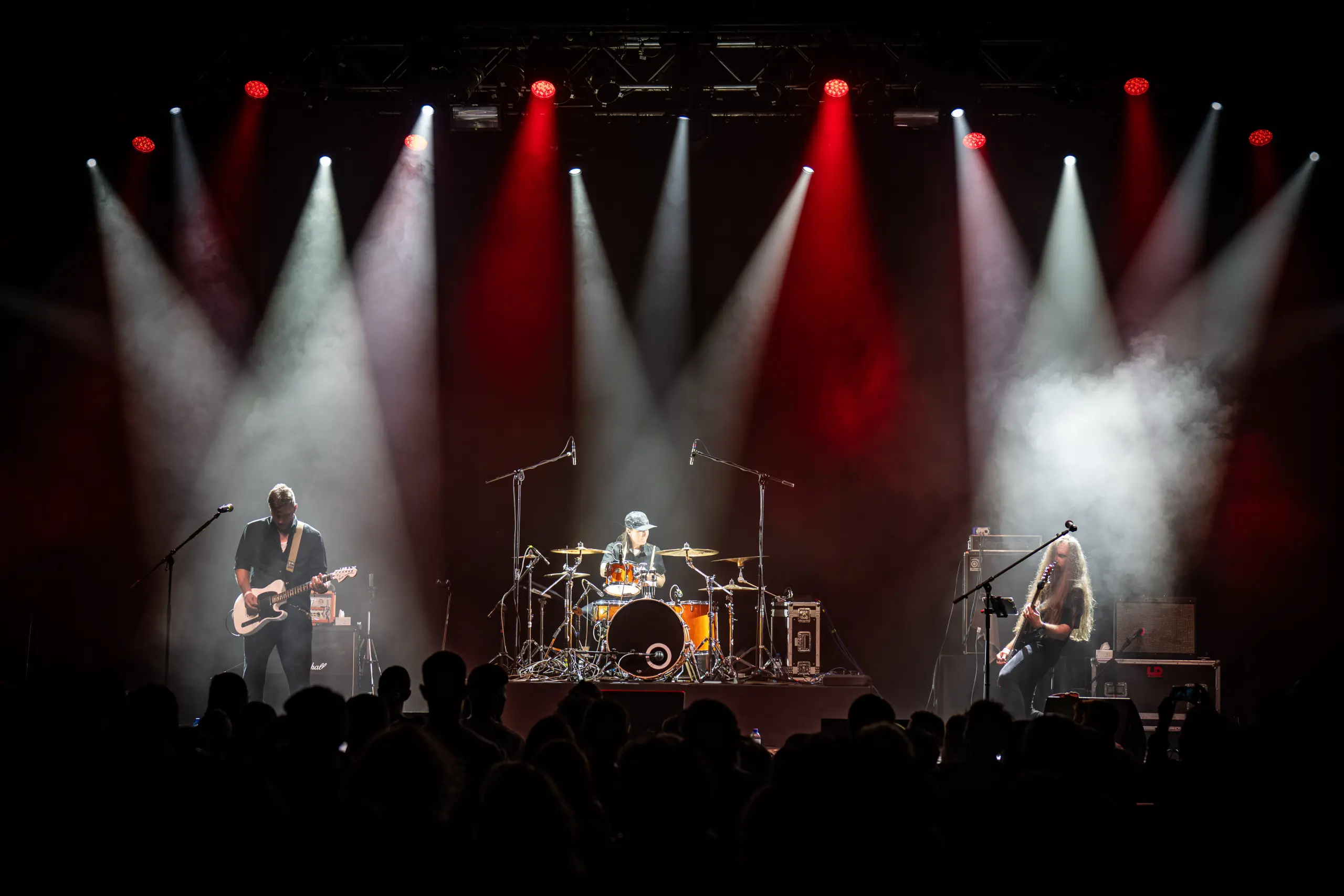The music of BIAZ NAZVY (also known as :B:N:) is not only for listening — it’s meant to be felt with all senses, to be remembered and carried across borders. Since their founding in December 1999, the band has been the voice for the voiceless — a scream across borders, languages, and decades. Rooted in the punk and rock scenes of Belarus and now based in Poland, BIAZ NAZVY has grown from underground heroes to torchbearers of cultural identity — still fueled by rebel energy and resistance to the mainstream.
Founded by vocalist and guitarist Alex Lutycz in the town of Bereza, the original lineup also featured drummer Ramuald Paźniak, guitarist Iwan Kiwatycki, and bassist Juryj Ściapanau. The band's lyrics have been written from the very beginning by Siarhiej Maszkowicz — a poet whose voice shaped the band’s thematic depth. The band’s lineup has evolved significantly over time, but Lutycz — the creative core and unwavering presence — has remained at the helm of BIAZ NAZVY since day one.
Today, the band also features bassist Mikalai Paliakou (formerly of the well-known Belarusian folk-punk band from Grodno) and Vicky Fates, one of the most acclaimed drummers in Belarus. This powerful trio forms the band's most recognized modern lineup — blending emotional storytelling, heavy riffs, and a sound that fuses classic rock with contemporary elements.
Through six albums, two EPs, and ten music videos, BIAZ NAZVY has captured the voice of a generation — its hopes, losses, anger, and resilience. Their latest release, 20+ (2025), confronts the world after 2020 — pandemic, protest, exile, war — and does so with honesty and power. Released on International Mother Language Day, it serves as both a cultural milestone and a powerful musical reflection.
BIAZ NAZVY has performed alongside bands such as Soulfly, Modjo, Sophie Ellis-Bextor, Coma, and Pidżama Porno, and has appeared on festival stages across Eastern Europe — including Union of Rock, Night of Culture, Basowiszcza, Be Free, Tutaka, and many more. Their concerts are fully electric, driven by uncompromising honesty — not just for Belarusians who grew up with their music, but for anyone who wants to hear the truth in unfiltered rock.
Often compared to Foo Fighters, Coma, Muse and Linkin Park, BIAZ NAZVY have forged their own musical identity — rooted in deep melodies and sharpened by urgent relevance. Their song Vydychaj, written amid the pandemic and protests in Belarus, reached 8th place on Antyradio’s Turbo Top chart — a rare feat for an exiled Belarusian artist.
But the stage is where BIAZ NAZVY truly comes alive. Their shows are jolts of rhythm, energy, and unity. The message is clear: no matter where you’re from or what you’ve lost, your voice still matters. "We're not just writing songs," says Lutycz. "We're trying to make sense of what it means to belong — and what it means to fight for your right to be heard."
Now entering their third decade, BIAZ NAZVY is not looking back. For longtime fans and new listeners alike, the message remains strong: this isn’t the sound of the past — it’s a voice that’s still alive today.
